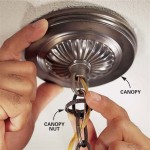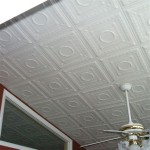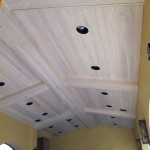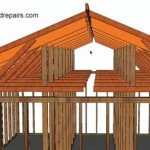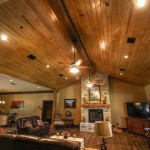Recessed ceiling tiles offer a unique way to add style to your home while also providing soundproofing and insulation. These tiles are designed to fit flush against the ceiling, allowing them to create a seamless look and reduce noise levels in your home. In this article, we’ll discuss the benefits of recessed ceiling tiles, the types available, and how to choose the right ones for your home.
Benefits of Recessed Ceiling Tiles
Recessed ceiling tiles offer a number of advantages over traditional ceiling tiles. For one, they create a seamless, flush look that can be used to great effect when decorating. This can be particularly helpful in smaller spaces, where traditional tiles may seem too bulky. Additionally, recessed ceiling tiles offer superior soundproofing and insulation, making them an ideal choice for bedrooms, media rooms, and other noise-sensitive areas.
Types of Recessed Ceiling Tiles
Recessed ceiling tiles come in a variety of materials, shapes, and sizes. Here are some of the most common types:
- Fiberglass ceiling tiles – these tiles are lightweight and durable, making them a great choice for homes with high ceilings.
- Acoustic ceiling tiles – these tiles are designed specifically to reduce sound reverberation and are often used in recording studios and other sound-sensitive areas.
- Aluminum ceiling tiles – these tiles are lightweight yet durable and are often used to give a room an industrial or modern look.
- Wood ceiling tiles – these tiles offer a classic look and can be stained to create a variety of colors and finishes.
- Vinyl ceiling tiles – these tiles are easy to install, affordable, and available in a variety of colors and patterns.
How to Choose the Right Recessed Ceiling Tiles
When choosing recessed ceiling tiles, it’s important to consider the type of material, the size and shape of the tiles, and the soundproofing and insulation needs of your home. Additionally, you should consider the style and color of the tiles to ensure that they will complement the overall look of your home.
When selecting recessed ceiling tiles, it’s also important to consider the cost of installation and the maintenance required. For example, some tiles require regular cleaning and sealing to keep them looking their best, while others may require more intensive care. Additionally, some tiles may require special tools or materials in order to install them properly.
Finally, it’s important to consider the compatibility of the tiles with your existing ceiling. Some tiles may require additional framing or other support, while others may not fit properly in certain ceilings. It’s important to consult a professional before selecting any tiles to ensure that they will work in your space.
Conclusion
Recessed ceiling tiles are a great way to add style and soundproofing to your home. With the right tiles, you can create a seamless look and reduce noise levels in your home. When selecting recessed ceiling tiles, it’s important to consider the type of material, the size and shape of the tiles, and the soundproofing and insulation needs of your home. Additionally, make sure to factor in the cost of installation and the maintenance required. By taking these factors into account, you can ensure that you select the best recessed ceiling tiles for your home.















Related Posts

